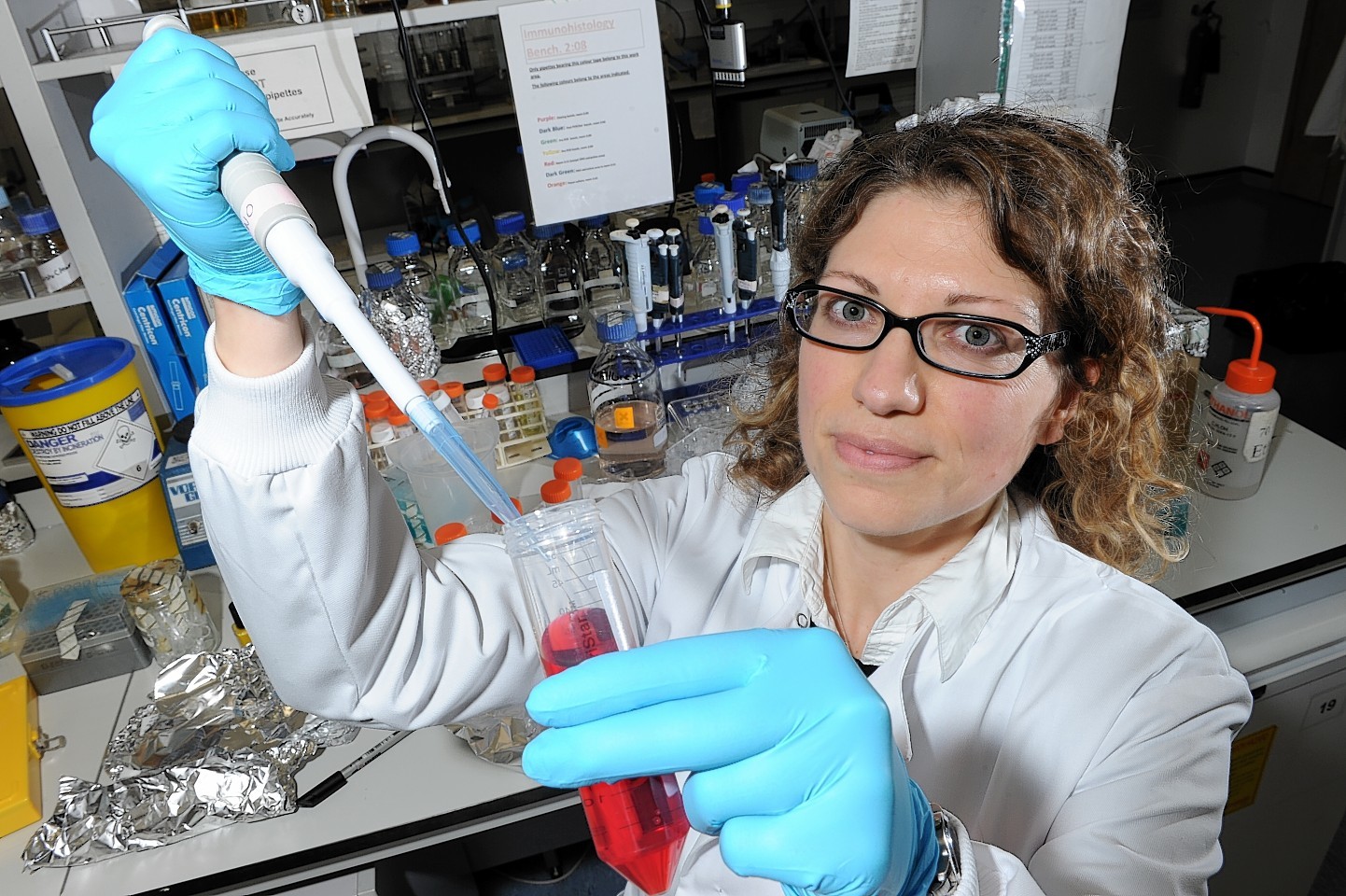Aberdeen scientists hope pioneering research will lead to a cure for typhoid.
Aberdeen was gripped by an epidemic of the disease 50 years ago this month.
The illness has, on the whole been consigned to history in the developed world, but claims the lives of 200,000 people across the globe annually.
Due to the way the infection spreads, typhoid is most common in parts of the world which have poor sanitation and limited access to clean water.
Dr Stefania Spano, who has moved from Yale, is leading a team of experts at Aberdeen University who hope to find new drug cures for the disease.
She said: “Typhoid is something that has been ignored for many decades. We have antibiotics which can ease treatment of bacterial infections but there is the issue that they are no longer as effective.
“We are hoping to find something different from antibiotics, a different way to treat typhoid and any generic bacteria.”
Her team hopes to find molecules which have the ability to kill the pathogenic bacteria, salmonella typhi, which causes the infection.
They have already identified molecules which are part of the process which occurs when the bacteria is destroyed.
Now they are hoping to identify “the killing factor” – the molecule which delivers the fatal blow in killing the salmonella typhi pathogen.
Dr Spano said: “If we can identify this it would provide enhanced understanding of the infection that could in the long-term lead to the development of new drugs for its treatment.”
In research carried out at Yale, Dr Spano discovered a cell process responsible for killing the bacteria in animals.
“Animals are able to get rid of the bacteria because there is something specific in their systems. They have macrophages within their bodies that have the ability to fight it,” she said.
“We want to find what is unique in the human biology that prohibits us from fending-off salmonella typhi.”
Typhoid is particularly widespread in developing areas such as Asia, Africa and South America, and is uncommon in the UK.
